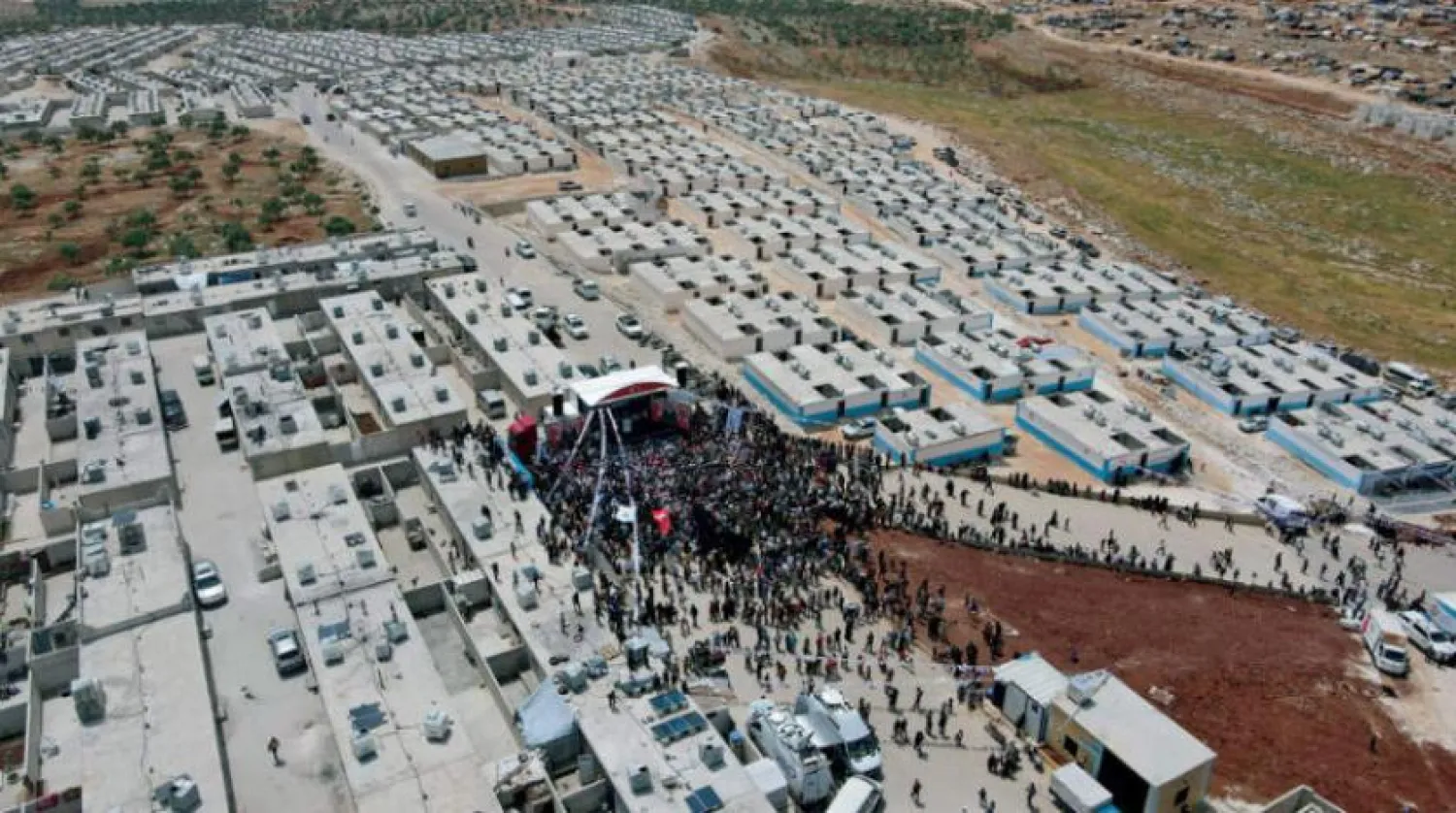Amid heated debate between the Turkish government and the opposition over the issue of Syrian refugees, Interior Minister Suleyman Soylu on Tuesday inaugurated a housing complex for displaced persons in Northern Syria’s Idlib.
The opening of the complex came in the context of Turkey’s announcement of preparations to have a million Syrians residing in the country to voluntarily return to Syria with the support of Turkish and international civil organizations.
Turkish President Recep Tayyip Erdogan affirmed that the comprehensive project allows the voluntary return of one million Syrians.
The initiative will be implemented with the support of Turkish and international civil organizations in 13 regions, including Azaz, Jarablus, Al Bab, Tal Abyad and Ras Al Ayn.
To be realized in cooperation with the local councils in those regions, the Turkish project includes the construction of various facilities such as schools and hospitals.
In a video address, Erdogan said around 500,000 Syrians have returned to “safe zones” on the Turkey-Syria border since 2016.
The Turkish president pointed out that the new project includes making the planned residential communities self-sufficient in terms of economic infrastructure, from agriculture to industry.
“All infrastructure projects, from housing to hospitals, everything regarding daily life will be in this project,” said Erdogan.
So far, 57,306 homes have been completed in northern Syria as part of the campaign to build 77,000 homes with the support of civil organizations.
The initiative is being coordinated by the Turkish Disaster and Emergency Management Authority.
Erdogan explained that these residential communities are designed so that they are suitable places for living and do not lack any facilities, such as mosques, schools, health centers, bakeries, and gardens.
Around 50,000 families have been accommodated to date.
“No one abandons their home without reason and throws themselves into an unknown future,” said Erdogan, noting that Turkey considers extending a helping hand to refugees a humanitarian responsibility.









